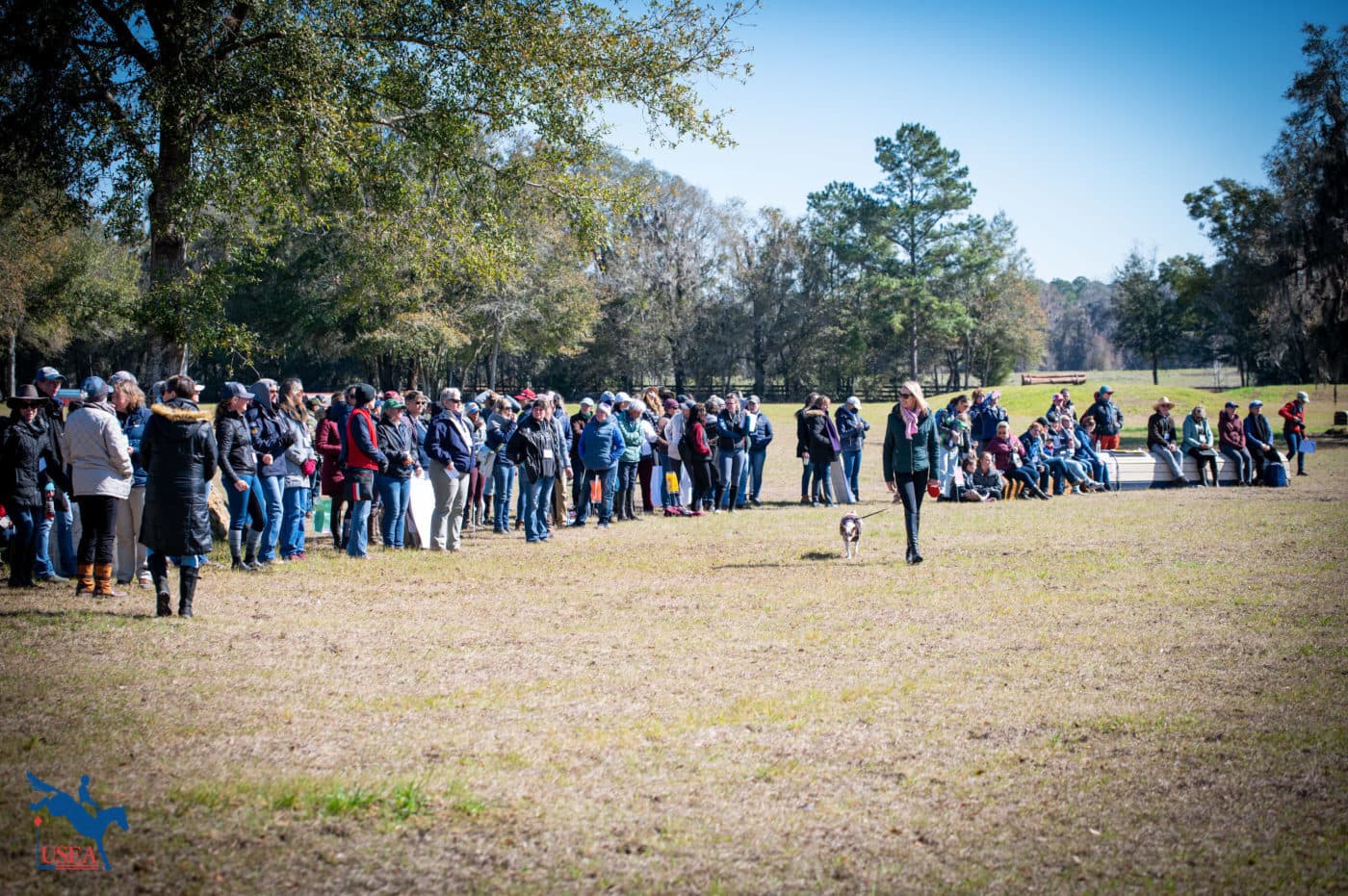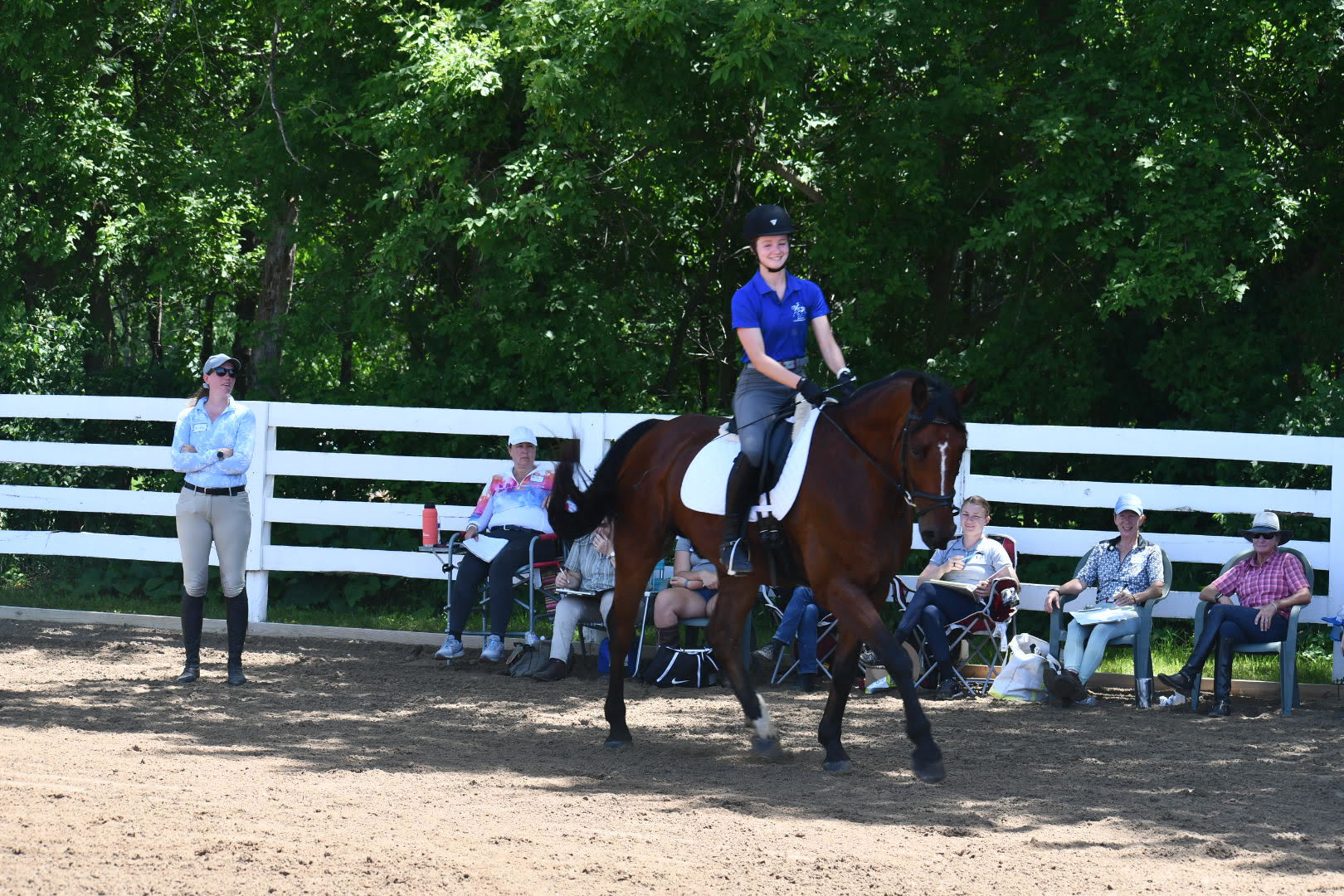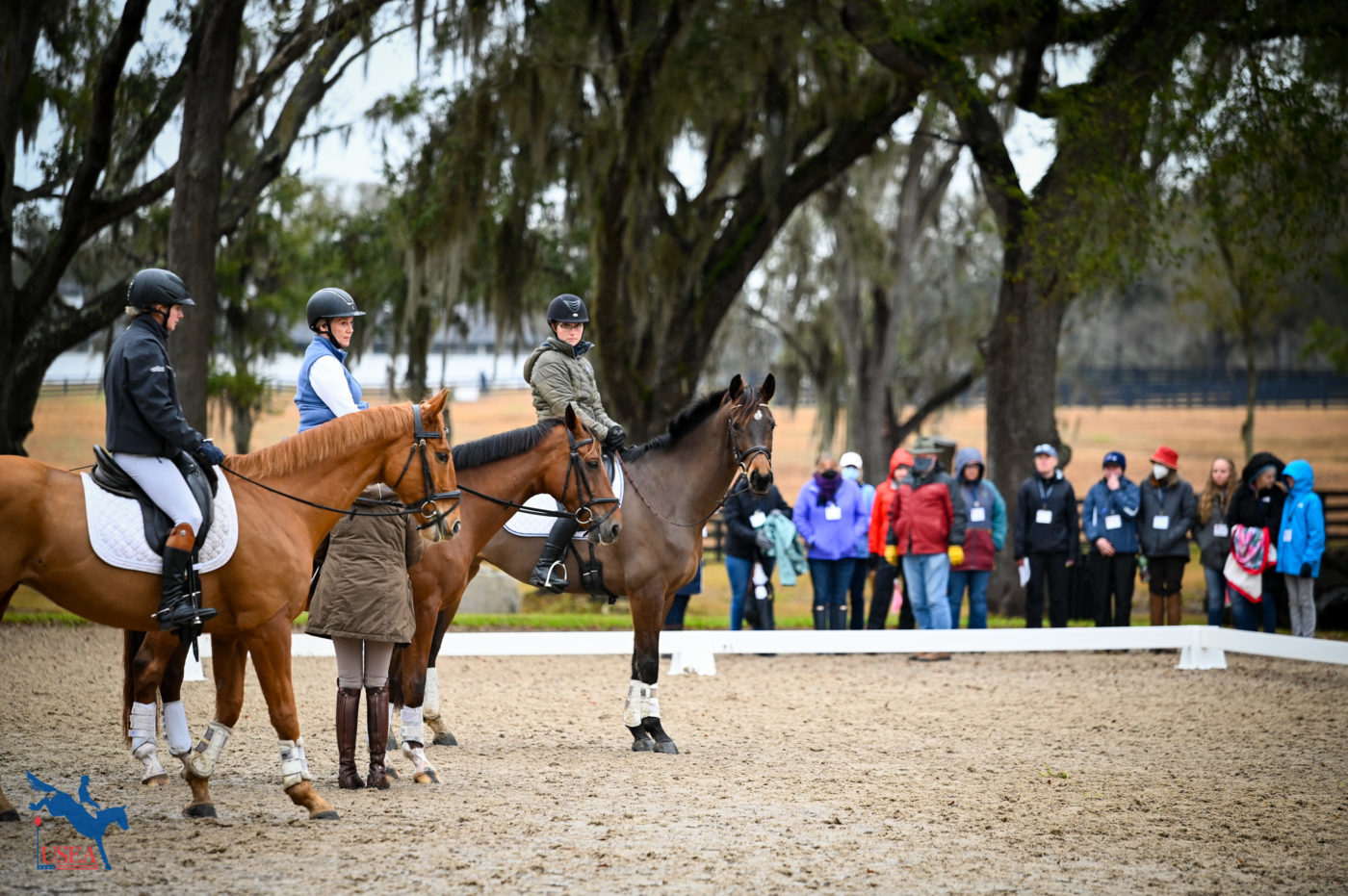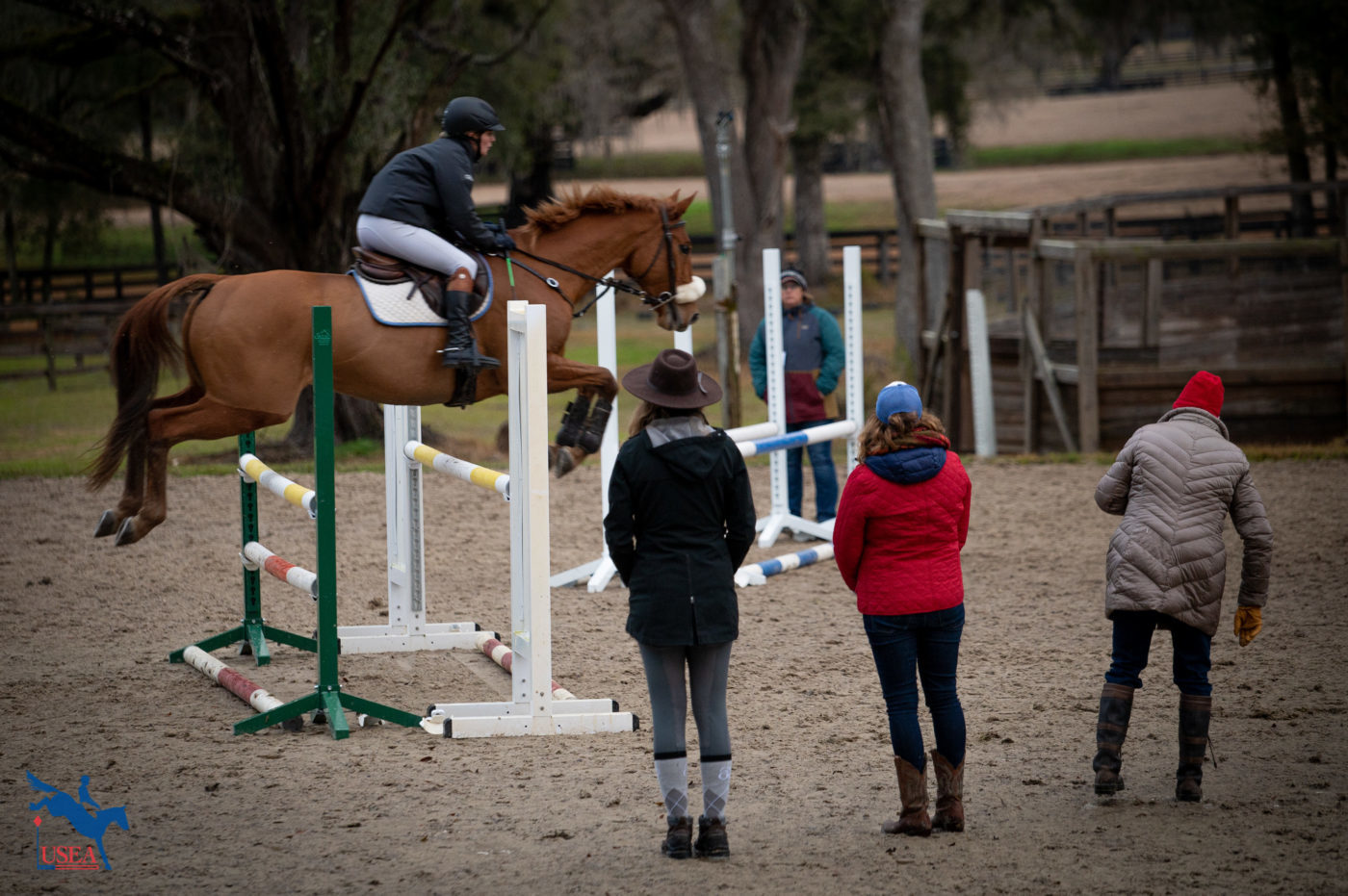Certification: An Important and Impactful Choice for Coaches and Riders

Unlike most other eventing nations, there is no requirement for eventing coaches to be certified to teach or coach in the United States. In most other countries, and certainly in the countries that are the most competitive on the world stage, there is a process by which instructors and coaches are prepared for and then examined to be certified to teach and coach. Conversely, here in the U.S., certification is a choice. Coaches may or may not choose to complete the ECP program, without penalty or impediment to their lawful right to earn a living as a coach. Accordingly, riders may or may not choose to ride and train with a certified coach.
The ECP (Eventing Coaches Program, formally ICP) has been working diligently to bring the program current with the challenges facing our sport on a global level, and to provide relevant, meaningful, support to coaches and riders at all National levels. As the song goes, “The times they are a changing”, and the program continues to grow and adapt as the sport evolves.
The Coach’s Role
A student’s regular coach is considered to have a leading influence on minimizing risk to both horse and rider. The coach prepares riders for competition and ensures that both horse and rider have the knowledge, skills, and physical ability to compete. The coach oversees all or most cross-country and jump schooling. The coach is often the deciding voice when a student is contemplating moving up the levels. Choosing which to attend, and which event could be considered a “move up” event, usually depends on the coach’s input.
With Influence Comes Responsibility
It follows that coaches should be held to a standard. The coach should accept responsibility for the correct, systematic, progressive education and development of the student-athletes. They should teach and coach their riders using best practices, from introduction to the sport through the levels of competition, over a period of several or many years. Ultimately, the coach must shoulder the responsibility of minimizing risk to both horse and rider.
Without a national mandate to be certified, why do instructors and coaches choose to become certified?
Hint: It’s not the money! Becoming certified absolutely gives a coach greater visibility and expands their network, which in turn, generates increased client traffic. However, the reasons why an individual coach chooses to become certified fall under two overarching themes:
- Personal Growth and Enrichment
- Supporting the Big Picture: The Health and Future of the Sport
Certification Provides an Invaluable Pathway for Coaches to Expand their Coaching Skills
It’s one thing to know what you are talking about; it’s another to teach it to multiple students of different generations with varied learning styles. The ECP program is committed to helping coaches know how to teach as well as what to teach. Emphasis is placed on developing progressive incremental steps to building a foundation of basics and adding skills, as is appropriate for each individual horse and rider combination. Additionally, the program asks coaches to examine all factors which influence and minimize risk to horse and rider, including all aspects of human and equine athlete management.
Coaches who complete the certification process obtain documented proof that they are certified professionals. That certification is based on proficiency in internationally accepted, proven, training principles for riders and horses, drawn from time-tested sources, and from experience with today’s competition challenges.
The ECP program offers certified coaches materials, resources, and mentor opportunities that present these essential training principles in a developmental sequence.

As part of the process, each coach attends two three-day workshops, one for dressage and gymnastics, and one for show jumping and cross-country. The ECP workshops provide each candidate coach an extraordinary opportunity to interact, exchange ideas, dissect problems, share tools, collaborate on solutions, and get constructive feedback from other professionals and peers.
The required Continuing Education program keeps certified coaches on the path of enhanced education through interaction and networking with other professionals, becoming part of the cohesive fabric of professionals in our sport.
The ECP program develops professional relationships with event coaches at all Eventing levels in the United States and is an important link in a growing network of Event professionals. Successful candidates enjoy the placement of the coach’s contact and other professional information on the USEA website.
Certification Supports the Big Picture
By supporting certification, a coach tangibly supports the premise that Event coaches are professionals.
Certified coaches are active members of a group of documented professionals who have pledged to maintain high standards for their teaching and horse care, who understand and commit to their responsibility for their students and their horses, and who have fully embraced their commitment to their own lifelong learning. Above all, coaches who complete the certification process are honoring their commitment to the development of Eventing in the U.S. and to the USEA, our national organization that guides, supports, and applauds that sport.
The choice to become a certified coach supports the USEA in the goal of creating a vast pool of certified professional coaches, as is mandated by all other countries.
The ECP program is designed to fit our unique nation; its size, the variety of its topography, and the distance in many regions of one event rider/coach from other event riders/coaches The program is tailored to support the National competition levels from the Starter Level through the Advanced Level, as well as the FEI levels. To that end, the ECP has developed the USEA Eventing Handbook by the Levels, to support the need for a common vocabulary, shared horse care principles, and a set of rider and horse development standards, from the lowest to the highest levels of competition, which support safe, effective, and humane event riding. The USEA Eventing Handbook is now available to every USEA member on their online member dashboard.
Certified coaches set the standard and the example for other professionals in our sport; especially for those just entering the sport at the professional level. Every coach who chooses to get certified helps make certification the “norm” for all Eventing coaches.
Perhaps the greatest positive impact that the choice to become certified has is the cumulative effect on the overall health of our sport.
Certification Help Validate Our Sport’s Social License

Since the last Olympic Games, riding has been removed from the Pentathlon and the modern Pentathlon has been forever altered, due to the power of social media backlash. Sir Mark Todd was suspended by the British Racing Authority after a video surfaced on social media of him using a tree branch as a longe whip to send a reluctant horse into a water jump. You may agree or disagree with the outrage that has been generated by these videos, but one thing is certain: We are vulnerable. That vulnerability is largely due to the ignorance of the greater social media audience, who know nothing of horses, and even less of the enormous level of care, caution, and love which guides our horse training and management. We may be only one incident away from our sport being forever changed by external forces. Our ability to exist depends on our willingness to protect our social license.
In today’s world where the social license of all horse sports is under continuous scrutiny, ECP certification is one tool that can be used to defend and prove adherence to best practices, a key component for the future health and longevity of our sport. All of the ECP program’s supporting materials, resources, the required workshops, and the recently published Handbook provide a tangible record of a coach’s commitment to best practices, to managing risk, and to the welfare of the horse. This benefits the coach in the event of an unfortunate incident, as well as the social image of the sport. Certified coaches contribute in a concrete and meaningful way to the long-term credibility and survival of our sport in this country and as an Olympic discipline.
The Choice to Train with a Certified Coach
When a rider (or parent) chooses to train with an ECP-certified coach, they demonstrate their support for the premise that event instructors are professionals. They are investing their time, money, and sweat equity with a documented professional who maintains high standards for their teaching and horse care, who understands and commits to their responsibility for their students and their horses, and who embraces their commitment to their own lifelong learning. By choosing a certified coach, a rider supports the development of Eventing in the U.S. and the USEA.
The rider/student/parent who seeks out a certified coach is choosing someone who has dedicated themselves and devoted extensive time and financial resources, to the education of riders, the safety and welfare of the horses, and the betterment of the sport.
That choice is positively supported by the fact that certified coaches are held to a standard, from their mandatory participation in the in-depth workshops through the rigorous assessment process, including written, teaching, and horse management examination. A rider who chooses to work with a certified coach will be exposed to the essential, globally recognized and accepted, training principles for riders and horses, which support the overall health of the sport and a high level of achievement for those who compete in it.
Choosing a certified coach produces a market-driven demand for adherence to best practices, which is imperative for the long-term health of our sport.
So…Why Not Choose Certification?
There are a few main reasons why coaches choose not to get certified:
- They do not need to be certified to be successful in their own business. They have a large enough client base and significant professional record which maintains their client flow.
While this may be true, it misses the important and impactful “big picture” reasons why certification is so vital to the continued health of our sport.
- They do not want to be told by anyone else how to train and teach, they have their own successful system which is unique to them, and they do not want to be forced to change their methods.
This is a misperception of how the ECP conducts its teaching and training. There are certain globally accepted, essential, teaching and training principles that may be taught, conveyed, and developed in hundreds of different ways with the same results. The ECP believes in the autonomy and individuality of instructor styles and methods if they adhere generally to accepted principles, and above all, are laser-focused on minimizing the risks for riders and horses.
- They know one or more certified coaches who they believe to be sub-standard, and they do not want to be associated with sub-standard coaching.
The ECP system of certification is very demanding but is not perfect. There will always be that rare individual that is able to complete the process, yet not able to produce satisfactory results. As part of the ongoing updating and upgrading process, the ECP program is committed to strengthening the certification process to maintain the highest possible standard, improving methods for monitoring coaches post-certification, and to developing accountability for all certified coaches.
- It is too expensive to complete the program, which includes required attendance at two workshops ($900) and an assessment ($500), plus travel and lodging costs to attend same and incurs a potential loss of income for 7 days plus however many travel days are needed. The total investment of money and time may be between $1400/7 days and $2500/13 days, or more, plus loss of income. That is a significant chunk for any coach to invest.
There are several financial grants available to support the process, and some areas have established funds to help coaches from their areas to become certified. Compared to other courses and schools which license professionals in almost every other profession imaginable, it’s a drop in the bucket. Most of all, it's one of the most worthwhile investments an individual coach can make in themselves, in their students, and in the overall health and longevity of our sport.
If you know a coach is struggling with the financial part, or you live in an area where there are no certified coaches, one remedy would be to ask the coach’s students to contribute to a fund to help them get certified. Another is to approach your Area organization to develop an assistance plan for coaches. There are many, creative ways to help.

See The ECP in Action! The ECP System and Program is at the Heart of the 2023 ECP Educational Symposium
Join us in the new year for three days of education, enrichment and fun. All riders, parents, and coaches are invited to attend and participate in the 2023 ECP Educational Symposium, January 17-19, 2023, at Barnstaple Eventing in Ocala, FL. This jam-packed, collaborative, interactive, educational–palooza harnesses the hive mind of the attendees with the goal of provoking discussion, finding consensus, and creating innovation in the art of teaching the sport of Eventing.
Five-Star riders and new-to-the-industry coaches are equally encouraged to participate. We all have something to learn from each other’s experiences. World-renowned experts will share their knowledge and experience. Everyone is welcome. For more information and the registration form, visit the USEA website.
About the USEA Eventing Coaches Program
Coaches are essential to the training of riders and horses for safe and educated participation in the sport of eventing. The USEA Eventing Coaches Program (ECP), formerly known as the Instructor's Certification Program (ICP), was initiated in 2002 to educate all levels of eventing coaches with crucial training principles upon which those instructors can continue to build throughout their teaching careers. ECP offers educational workshops and assessments by which both regular coaches, Level I through Level V, Young Event Horse (YEH) instructors, and Young Event Horse professional horse trainers can become ECP certified. Additional information about ECP’s goals, benefits, workshops, and assessments as well as names and contact information for current ECP-certified coaches, YEH coaches, and YEH professional horse trainers are available on the USEA website. Click here to learn more about the Eventing Coaches Program.















